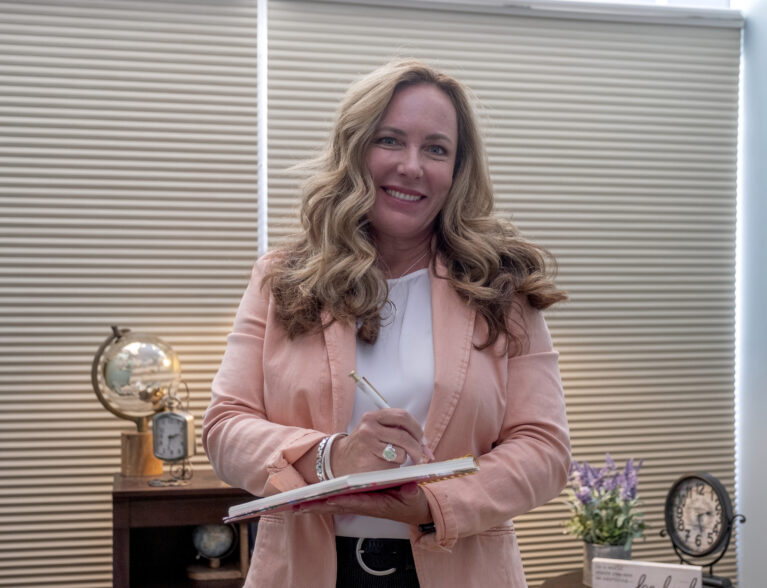
“I like myself for who I am.”
Crystal N. Hutchinson, MSW, LCSW, a therapist who practices in Vero Beach, says that’s how we need to think of ourselves but that, sadly, many people do not.
“Unfortunately, we tend to dwell more on what we see as our negatives rather than our positives,” she says.
Verywell, an online source of health information, says people tend to have a “negativity bias,” a tendency not only to register negative stimuli more readily but also to dwell more on these events. This bias means that we feel the sting of a rebuke more powerfully than we feel the joy of praise.
“Often, the seeds are sown in childhood when parents and teachers can make children feel they’re doing more wrong than right,” Hutchinson says. “A child can do nine things right and one thing wrong and – unfortunately – that’s often what’s singled out and commented on.
“Couple that with reading about the ideal, unrealistic lives people post about on social media and it’s easy to have low self-esteem,” says Hutchinson. “Since most posts are about good stuff that’s happening in people’s lives – there aren’t many posts about sad things – it can be tough to feel good about yourself by comparison.”
Beyond personal social and psychological conditioning, scientists say negativity bias is rooted deep in the psyche and nervous system as an evolutionary aid to survival. For hundreds of thousands of years, it was crucial that people pay more attention to and better remember circumstances and events that harmed or endangered them so they could avoid danger and stay alive.
The good news is that there are ways to learn to like yourself better despite this pernicious negativity bias. Psychology Today offers 10 suggestions:
- Don’t be afraid to confront your failings. Being able to think about your weaknesses doesn’t condemn you to a life of self-hatred.
- Consciously take time to step back and enjoy your accomplishments. When you’ve done something well, don’t be afraid to admit that you succeeded and linger in the glow of accomplishment. It doesn’t have to be something earth-shattering.
- Learn to look at the things you like about yourself in the mirror.
- Go on a date with yourself. On the date, spend some time alone devoted to thinking about your experiences.
- Strive to be a better person, but don’t expect changes to happen all at once.
- Spend a weekend day or evening without worrying about how you look. See what it’s like to be yourself without being concerned about impressing anyone else.
- Think about the past, but don’t let yourself be overwhelmed with regret.
- Understand that no one is perfect. When you’re in low self-acceptance mode, you believe that everyone is better than you, but you can stop comparing yourself negatively.
- Enjoy your personality, foibles and all. You have made it this far.
- Like “most” of yourself as much as you can. You may not reach 100 percent self-satisfaction, but maybe you can get to 75 percent or 80 percent.
Hutchinson says it is important to learn to appreciate what you bring to the table. And when people compliment you for that, it’s OK to accept the compliment. “You may not think that what you have to offer is a big deal, but others don’t necessarily see it that way.
“When you stop minimizing your plusses, it will be easier to like yourself.”
There are many benefits associated with liking yourself, according to Cleveland Clinic. They include making you more open to new experiences, building resilience, building better social relationships, enhancing your decision making, and improving your mental and physical health.
In Hutchinson’s opinion, American culture doesn’t always exhibit the kind of value and respect for others that some other societies do. “I spent time in Japan and learned that their culture honors family members in significant ways. All generations value each other.
“For example, elderly and teen drivers have a sticker identifying them as such on their cars so that other people can make allowances for them on the road. It’s easier to like yourself when you feel like you’re being accepted and valued for whom and what you are.”
Liking yourself, or self-love, may seem similar to narcissism but there is a fundamental difference. Liking yourself is a profound appreciation for oneself that fuels personal growth.
While narcissism might appear as an extreme form of this, it is, in fact, driven by an inflated sense of one’s importance. A narcissist doesn’t just want a slice of the pie; they want the entire pie, with everyone watching them eat it. Narcissism tends toward disregarding other people’s hopes, needs and humanity. Honest and compassionate self-care and appreciation have the opposite effect.
Hutchinson says it’s OK to treat yourself with kindness. “You don’t always need validation from outside sources. Take the time to learn to like yourself and make yourself feel good. The way you treat yourself signals to others how they should treat you.” It also opens the door to treating others with respect and kindness. The old saying that you cannot love others unless you love yourself contains considerable truth.
Crystal N. Hutchinson, MSW, LCSW, has a bachelor’s degree in psychology from the University of Florida and a master’s degree in social work from Walden University. She practices as a licensed clinical social at 902 20th Place, Vero Beach. Her phone number is 772-213-1369.



